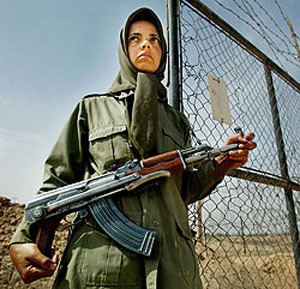|
The United Nations Assistance Mission for Iraq (UNAMI) says the Mujahedin-e Khalq Organization (MKO, a.k.a. MEK) has a hierarchical and authoritarian structure and imposes a number of severe restrictions on the residents’ rights. |
 According to Habilian Association, UNAMI said in its Half Yearly Human Rights Report covering the period from January to June 2013 that it has “continuing concerns about human rights abuses committed by the PMOI/MeK leadership within Camp Hurriya against the residents.”
According to Habilian Association, UNAMI said in its Half Yearly Human Rights Report covering the period from January to June 2013 that it has “continuing concerns about human rights abuses committed by the PMOI/MeK leadership within Camp Hurriya against the residents.”
The report which features a range of human rights issues in Iraq, is published by UNAMI in cooperation with the UN Office of the High Commissioner for Human Rights (OHCHR).
Describing the MKO as a “hierarchical and authoritarian structure,” the UNAMI’s report details a number of “severe restrictions” on its members’ rights, including the “right of freedom of movement within the Camp and the right to leave the organization, the free right of association, along with restrictions on contacts with family members (including those residing in Camp Hurriya), on access to basic communications, and on access to medical care and treatment.”
“These claims have been made to United Nations Monitors during interviews with residents who had managed to leave Camp Hurriya, as well as in a number of private discussions with residents who still reside in the Camp - despite the leadership’s attempts to prevent such discussions,” reads the report.
“UNHCR has continued to work towards identifying individuals in need of international protection and durable solutions for the residents of Camp Hurriya. As of 30 June 2013, 1,604 individuals had been identified as requiring international protection,” the report says, adding, “however, UNHCR’s efforts to find durable solutions for the residents have been hindered by the non-cooperation of residents, such as the boycotting of UNHCR interviews.”
The report also refers to the relocation process of the MKO members as a result of which a number of them have been relocated to Albania and Germany.
“In March, the Government of Albania offered to accept up to 210 residents for resettlement. However, the PMOI/MeK refused the names accepted by the Government of Albania, and insisted that it should decide who should be resettled there. As a result by the end of June, UNHCR had facilitated the resettlement of 71 residents only. Similarly, in April the Government of Germany decided to accept up to 100 residents for resettlement. At the time of writing, preparations were underway to relocate the first group some time in July.”
